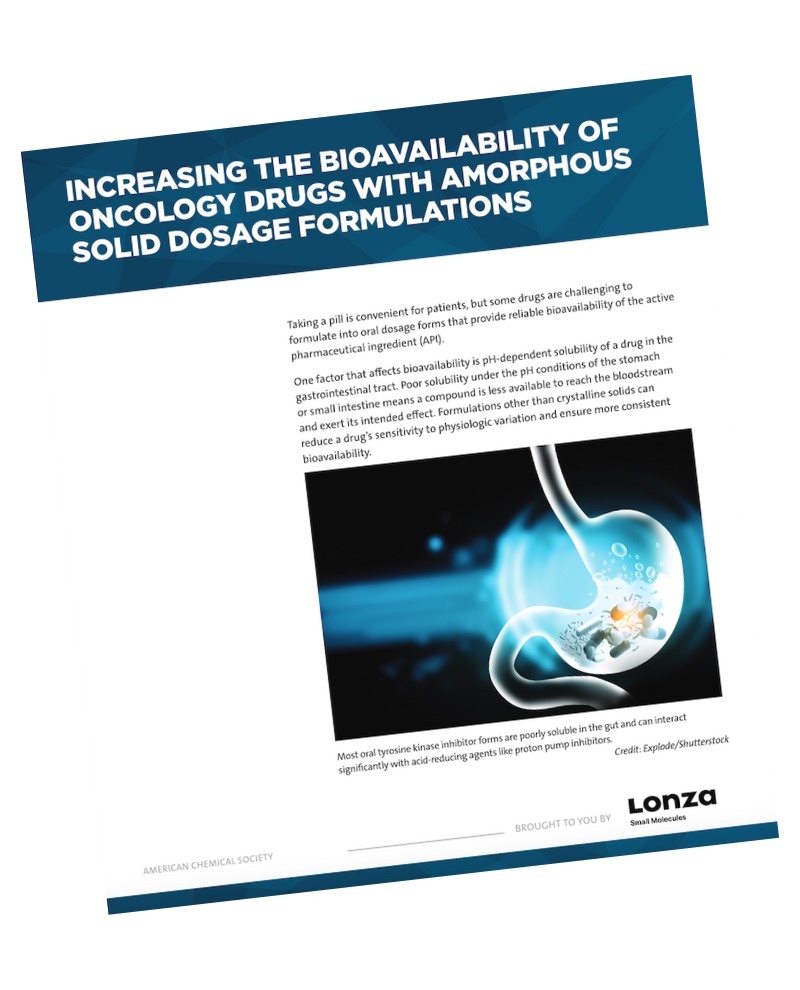

Oral tyrosine kinase inhibitors (TKIs) are a class of cancer drugs that can be highly susceptible to issues with solubility in the gastrointestinal tract. Most crystalline TKI drugs have pH-dependent solubility that affects their bioavailability in an oral dosage form. Consequently, natural variations in gastric pH, or variations due to eating or taking antacids, can significantly impact drug absorption and, in turn, therapeutic efficacy.
Alternative formulation techniques such as amorphous solid dispersion (ASD) can still deliver the convenience of a pill while reducing TKIs’ sensitivity to physiological variation. This ensures more consistent—and higher—bioavailability. This whitepaper outlines the challenges associated with pH-dependent solubility for oral TKI drugs and reviews how leveraging ASD formulation can help create more effective, patient-friendly drug products.
- pH-dependent solubility of oral tyrosine kinase inhibitor drugs
- Implications for bioavailability, therapeutic efficacy, and patient-friendliness
- Amorphous solid dispersion as an alternative formulation approach to improve solubility
- Methods for implementing ASD formulation

Copyright © 2025 American Chemical Society | 1155 Sixteenth Street NW | Washington, DC 20036 | View our Privacy Policy